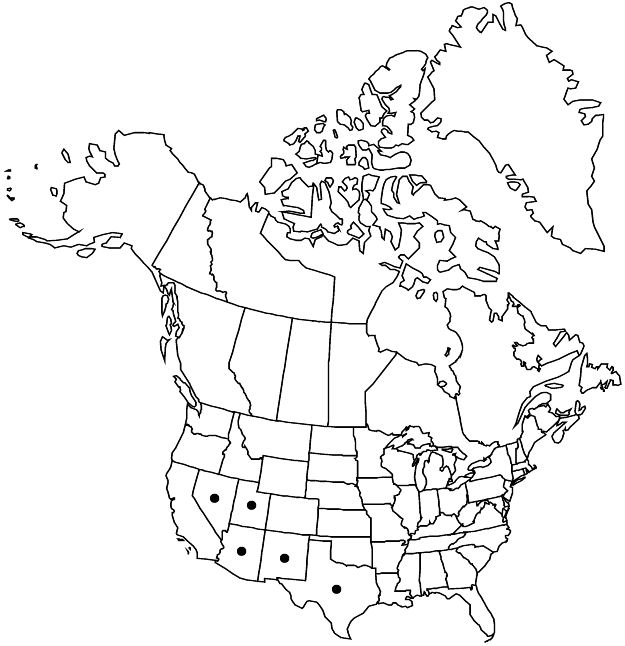Vitis arizonica
Amer. Naturalist 2: 321. 1868.
Plants sprawling to low climbing, shrubby, much branched. Branches: bark exfoliating in plates; nodal diaphragms 1.5–3 mm thick; branchlets slightly angled when young, becoming terete, arachnoid or arachnoid-floccose, sometimes glabrescent, growing tips not enveloped by unfolding leaves; tendrils along length of branchlets, soon deciduous if not attached to support, branched, tendrils (or inflorescences) at only 2 consecutive nodes; nodes not red-banded. Leaves: stipules 1.5–3 mm; petiole 1/2 to ± equaling blade; blade cordate to cordate-ovate, 5–12 cm, usually unlobed to 3-shouldered, sometimes shallowly 3-lobed, apex acute to acuminate, abaxial surface not glaucous, moderately to sparsely arachnoid, visible through hairs, veins and vein-axils sometimes only hirtellous, adaxial surface sparsely arachnoid or glabrous. Inflorescences 4–12 cm. Flowers functionally unisexual. Berries black, slightly or not glaucous, globose, 6–10 mm diam., skin separating from pulp; lenticels absent. 2n = 38.
Phenology: Flowering Apr–Jun; fruiting Jul–Oct.
Habitat: Stream banks, canyon bottoms.
Elevation: 400–3000 m.
Distribution

Ariz., Nev., N.Mex., Tex., Utah, Mexico (Chihuahua), Mexico (Coahuila), Mexico (Nuevo León), Mexico (Sinaloa), Mexico (Sonora)
Discussion
Vitis arizonica is variable and intergrades with V. girdiana in southern Nevada; it is in need of in-depth field and experimental studies. Some authors have recognized two varieties of this species (vars. arizonica and glabra), but the characters used to distinguish them intergrade so freely that their recognition does not seem justified.
Selected References
None.
Lower Taxa
"connate" is not a number.